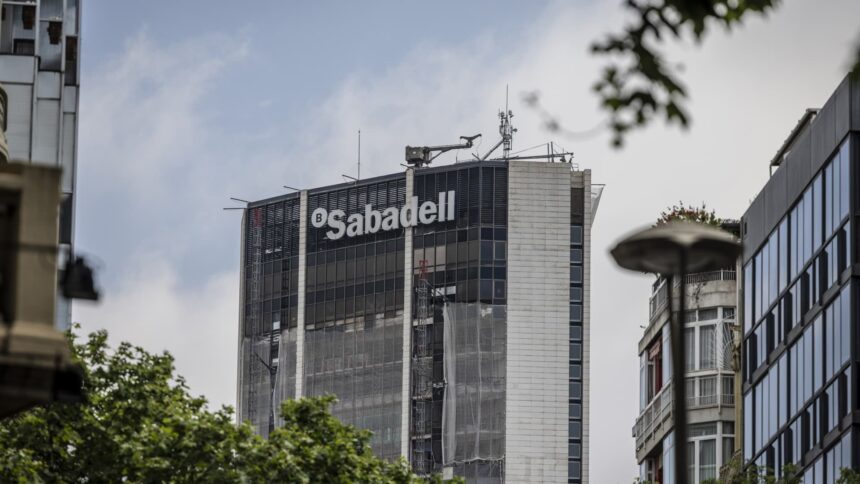The ongoing power struggle in the Spanish banking sector has intensified as the chief executive of Sabadell vehemently criticized BBVA’s attempted takeover, characterizing it as “completely derailed” and riddled with “insurmountable” execution risks. BBVA, the second-largest bank in Spain, has been pursuing an all-share deal valued at approximately 15.3 billion euros ($18 billion) for 16 months, aiming to acquire its smaller rival.
Cesar Gonzalez-Bueno, CEO of Sabadell, articulated his disapproval during a recent CNBC interview, asserting that the bid fundamentally undervalues his bank. In a recommendation to shareholders, Sabadell’s board urged a rejection of BBVA’s offer, which is set to be voted on by shareholders by October 7. They now face a crucial decision: accept BBVA’s proposal or continue with Sabadell’s independent business strategy.
Complicating the acquisition bid is a recent government intervention that permits the merger but prohibits any operational integration for up to three years, a move aimed at safeguarding jobs in the sector. Gonzalez-Bueno commented that the government-imposed conditions render the proposed benefits of the merger unattainable, raising the possibility that a full merger may never materialize due to significant public backlash and necessary future government approvals.
In contrast, BBVA’s CEO Onur Genc maintains a more optimistic outlook regarding the acquisition, asserting that the deal presents an advantageous opportunity for all stakeholders involved. Genc emphasized the necessity for scale in the banking sector, particularly in Europe, where he believes that both large and small banks must consolidate to remain competitive.
Gonzalez-Bueno challenged this rationale, cautioning that the formation of a banking giant with nearly 25% of the market could lead to adverse consequences. He stated that once a threshold of concentration is achieved, it may generate negative synergies. A significant portion of Sabadell’s clientele comprises small and medium-sized enterprises (SMEs), and he warned that these customers could opt to shift their business activities to diversify their banking relationships if the merger proceeds.
Market reactions appear to be unfavorable for BBVA, as Sabadell’s shares have surged since the takeover bid was unveiled. This rise has effectively negated the initial 30% premium offered, with Sabadell now trading at a negative differential of about 9%. Analysts at Bank of America argue that while the deal’s economics may be compromised, it is not definitively doomed. They project that significant cost savings could still be realized in the short term despite the legal delays imposed by the government.
Further complicating matters, BBVA has indicated it does not plan to increase its offer, although it retains the option to do so until late September. Initially, credit rating agency Scope suggested that BBVA shareholders would benefit greatly from the merger, asserting that the combined entity would be unparalleled in Spain and potentially reshape the landscape of the banking sector.
As the situation unfolds, industry watchers are left to speculate on the viability of the takeover amid fluctuating market sentiments and regulatory challenges. Shareholders of Sabadell face a pivotal decision that could redefine the future of the Spanish banking industry.







